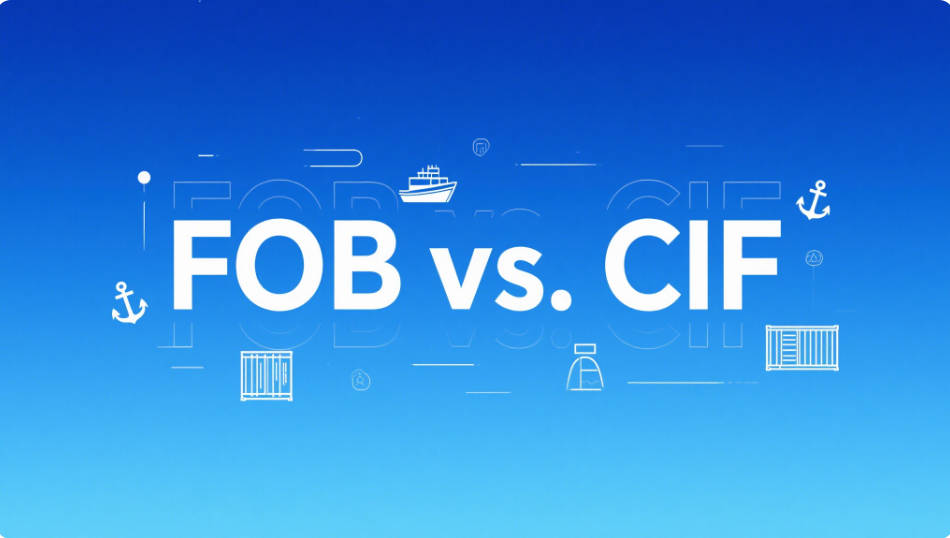
FOB, or "Free on Board," is a common term in global trade. It means the seller’s job ends when goods are loaded onto the ship at the chosen port. After that, the buyer takes on all risks and costs for shipping. FOB gives buyers more say in the shipping process. They can pick their freight forwarders and work out better deals.
In a FOB agreement:
FOB lets buyers manage logistics. But they must be ready to handle risks during transport.
CIF, or "Cost, Insurance, and Freight," puts more tasks on the seller. The seller delivers goods to the port. They also pay for shipping to the destination port. Plus, they arrange insurance for the journey. This term makes trade easier for buyers. It cuts down their logistics work.
In a CIF agreement:
CIF eases the buyer’s logistics load. It also ensures insurance during transit.
Think about how much control you want over shipping. With X Sourcing’s full sourcing services, FOB clients can easily manage vendors. They keep full oversight of freight plans. For those wanting less logistics work, CIF shifts more tasks to sellers.
Risk management matters. FOB means buyers take transit risks. But they can choose their own insurance. CIF offers comfort with seller-arranged insurance. X Sourcing helps weigh these risks. They offer advice tailored to your business.
X Sourcing makes procurement simple. They work directly with vendors for clients. From market research to checking suppliers and confirming samples, the team ensures smooth work with trusted suppliers.
FOB agreements need port expertise. X Sourcing’s skilled agents manage every step. They check quality before shipping. They handle export documents. This keeps products loading onto ships without delays.
For CIF terms, X Sourcing arranges freight and negotiates good rates with carriers. The team ensures insurance fits client needs while keeping costs low.
X Sourcing makes CIF logistics easy. They handle shipments and track delivery times. This lets you focus on growing your business.
FOB suits buyers wanting full control over logistics. It’s also good if you have trusted freight forwarders. Examples include:
X Sourcing helps by managing vendor tasks in these cases. They ensure smooth shifts from production to shipping.
FOB often cuts overall costs. Buyers can negotiate with carriers directly. They can also combine shipments through partners like X Sourcing.
CIF works well when buyers want less logistics work. It’s also good if you’re new to global shipping. Sellers handle most tasks until goods reach the destination port.
CIF’s insurance lowers financial risks during transit. For businesses valuing safety over savings, X Sourcing ensures freight and insurance are handled well. They tailor policies to client needs.
X Sourcing uses its wide supplier network. Their skilled team negotiates great FOB terms for clients.
The team ensures all deals meet global trade rules. They audit suppliers and manage export papers efficiently.
X Sourcing handles CIF freight coordination. They secure full insurance at good rates.
Clients can track shipments in real-time with X Sourcing’s systems. This lasts until goods reach the destination port.
A: FOB shifts responsibility to buyers once goods are on the ship. CIF has sellers cover freight and insurance until the destination port.
A: X Sourcing manages vendor coordination and export documents. They check quality before shipping and ensure trade rule compliance.
A: Pick CIF for less logistics work or if you want insurance included. Sellers handle most tasks until goods arrive.
A: Yes, X Sourcing negotiates good freight rates for both FOB and CIF. They also cut overall procurement costs.
A: Think about control, risk, and budget. Talk to X Sourcing for advice tailored to your business.
Contact us via WhatsApp: +86-135-8625-9561 Email: info@xsourcingchina.com.